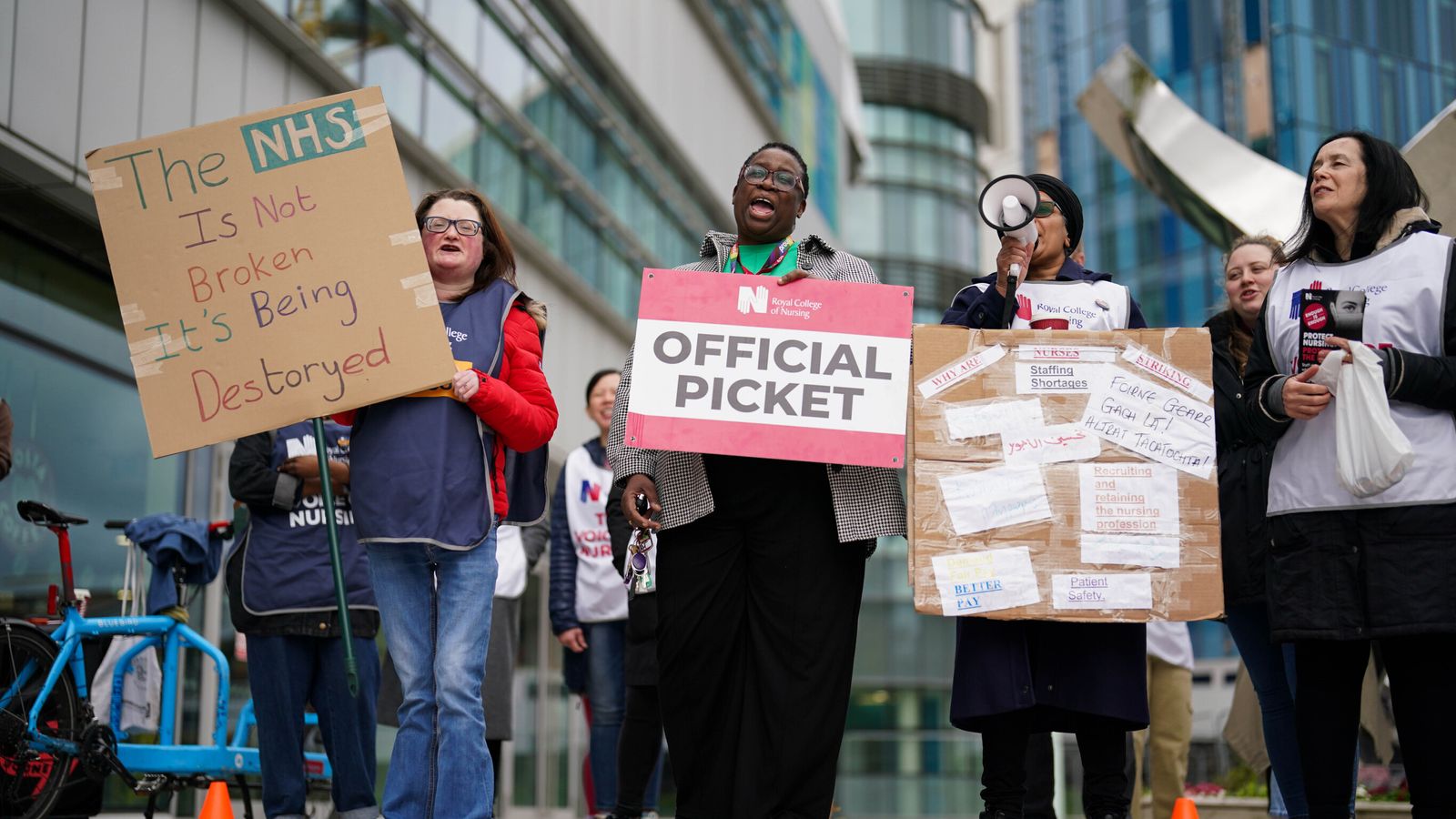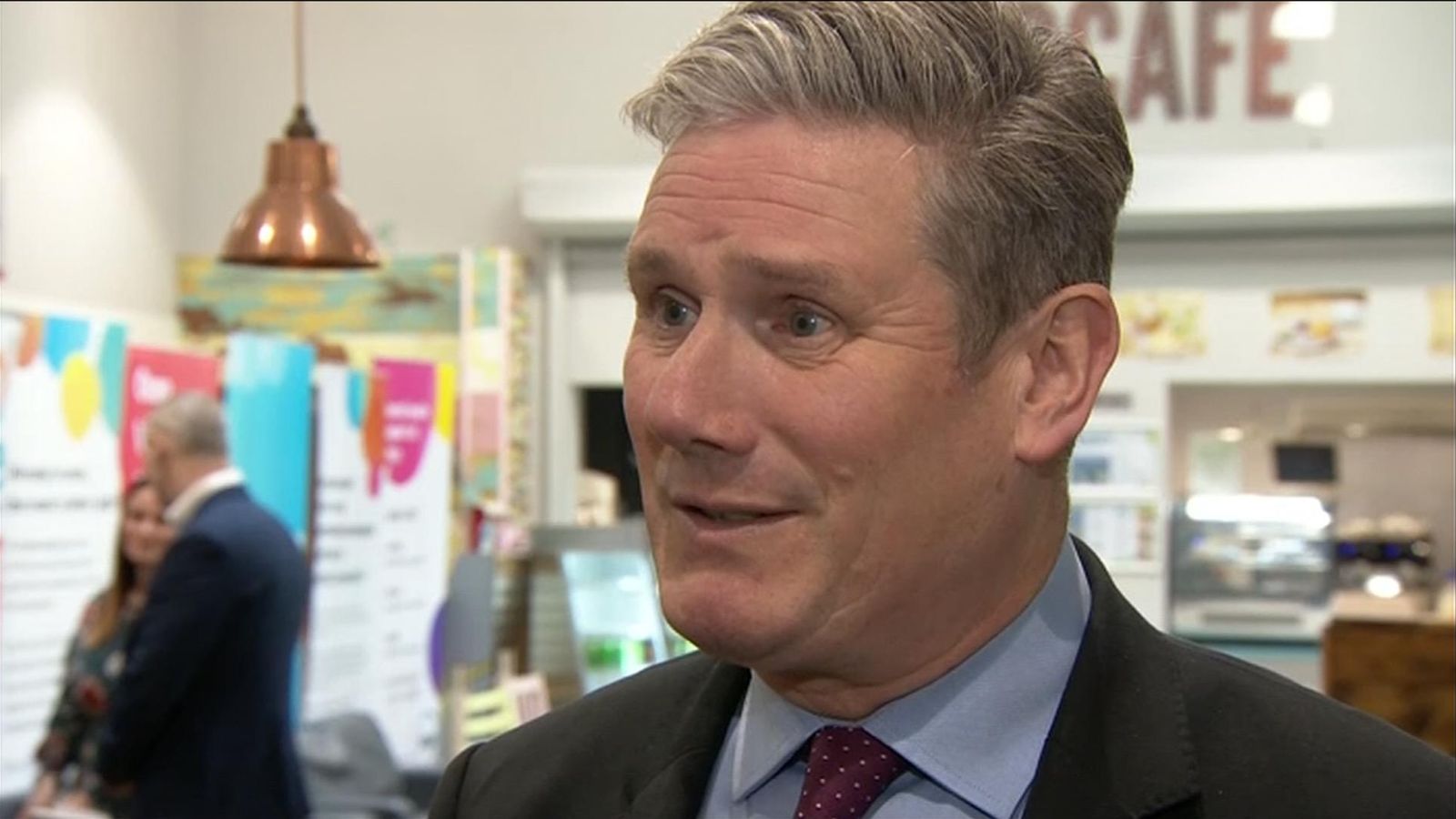Group of unions for NHS staff – including nurses – vote to accept government pay offer

A group of unions representing NHS staff – including nurses – has voted to accept a pay offer from the government.
Unison, GMB, the Chartered Society of Physiotherapists and the Royal College of Midwives were among those who supported the 5% pay offer, plus a cash top up.
The Royal College of Nursing – which represents most nurses – and Unite voted against the deal.
Health Secretary Steve Barclay says he now plans to impose the deal for all of those on the Agenda for Change pay scale.
But it does not necessarily mean industrial action will end, as there could still be opposition from unions to offers for the 2023/24 period as well as workplace reform.
The Royal College of Nursing is set to re-ballot its members for a mandate to strike – which could precipitate action taking place up until Christmas.
And Unite has said it will continue to announce strike dates, as it ballots its members over whether they still want to take action.
Mr Barclay said: “It is now my intention to implement this for all staff on the Agenda for Change contract and where some unions may choose to remain in dispute, we hope their members – many of whom voted to accept this offer – will recognise this as a fair outcome that carries the support of their colleagues and decide it is time to bring industrial action to an end.
“We will continue to engage constructively with unions on workforce changes to ensure the NHS is the best place to work for staff, patients and taxpayers.”
Advertisement
Sara Gorton, the head of health at Unison, said: “NHS workers will now want the pay rise they’ve voted to accept. The hope is that the one-off payment and salary increase will be in June’s pay packets.
“But health staff shouldn’t have needed to take action in the first place. Unions made clear to ministers last summer that £1,400 wasn’t enough to stop staff leaving the NHS, nor prevent strikes. But the government wouldn’t listen.
“Proper pay talks last autumn could have stopped health workers missing out on money they could ill afford to lose. The NHS and patients would also have been spared months of disruption.
“This pay deal must be the start of something new in the NHS. There cannot be a repeat of the past few months. Everyone who cares about the NHS deserves better. That means improving the process that sets health worker wages.
“The NHS remains desperately short of staff too. Services can only cope with growing demand if there’s a properly resourced and well-supported workforce. Government must now work with unions to achieve just that.”
A letter from GMB to Steve Barclay in the wake of the vote welcomed the deal as “first steps on the long journey to dealing with the fundamental issues” facing its members and the NHS.
Danny Mortimer, the chief executive of NHS employers, said today’s developments were “very positive”.
He said he is awaiting “confirmation of their plans” from the unions which rejected the deal.

